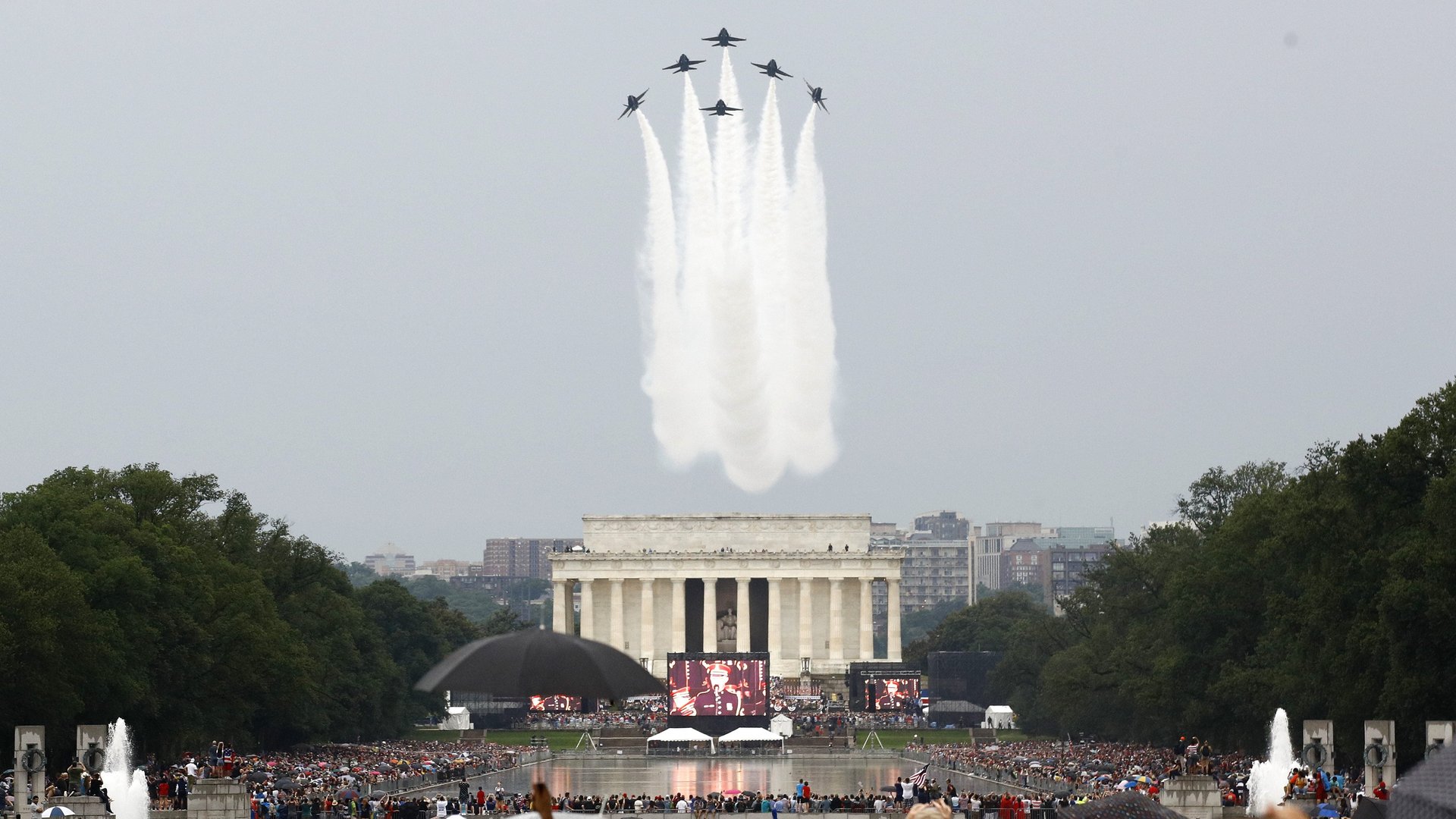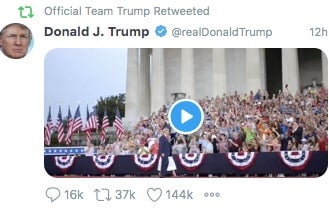US taxpayers funded this epic Trump 2020 campaign ad
US president Donald Trump’s “Salute to America” speech on July 4th was delivered to a soggy crowd of thousands on the National Mall, without serious incident.


US president Donald Trump’s “Salute to America” speech on July 4th was delivered to a soggy crowd of thousands on the National Mall, without serious incident.
Yes, the US president accidentally said US revolutionaries seized airports from the British in the 1700s, and there’s plenty of debate about how big the crowds really were. But Trump mostly avoided the pitfalls that ethics experts had warned about, by not trashing his 2020 election political opponents or talking about his reelection bid.
Still, the speech delivered in one big way for the Trump re-election campaign. The White House cut a short video of the event set to stirring music. It features plenty of military hardware, and enlisted personnel cheering and clapping for Trump. Filmed in part with a high definition camera, it is one of the most polished videos the Trump White House has produced.
It was quickly tweeted by Trump, and then re-tweeted by TeamTrump, the “official Twitter for the Trump campaign.”

Walter Shaub, the former head of the Office of Government Ethics, called it a “taxpayer-funded campaign ad.”
It is unclear how much the security for Trump’s speech, his guests, and the requested flyovers by US military planes cost US taxpayers. The National Park Service was forced to divert $2.5 million in entrance fees tagged for park maintenance to cover at least part of the additional costs, the Washington Post reported.
If the Federal Election Commission (FEC) officials determine that the Trump campaign benefitted from the July 4th speech, theoretically the campaign could be forced to pay the costs. Using federal funds for partisan political purposes violates federal law, as the Citizens for Responsibility and Ethics in Washington (CREW) explained earlier:
Federal appropriations law prohibits using the government’s money for purposes Congress has not authorized. Also, section 501 of the Consolidated Appropriations Act of 2018 (and the pending bill for a Consolidated Appropriations Act of 2019) specifically prohibits the use of federal funds for unauthorized “publicity or propaganda.” The Government Accountability Office, which issues guidance on the use of appropriated funds, has said political activity can run afoul of these prohibitions. The Justice Department, too, has held that “If . . . there is no reasonable connection between the expense incurred and the official purposes to be served by an appropriation—as, generally speaking, there would not be when an expense is incurred purely for partisan political purposes—official funds may not be used to pay the expense.”
In addition, the Hatch Act bars political appointees “from engaging in any political activity that is paid for by money derived from the Treasury of the United States,” CREW notes.
Practically speaking, though, it is hard to see what US agency might hold the Trump campaign liable for the costs. The FEC is so riven by partisan politics that it is mostly not functioning and the Trump White House has been ignoring advice from the Office of Special Counsel, which monitors Hatch Act violations.